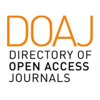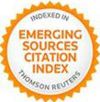Virtual models for archaeological research and 2.0 dissemination: The early medieval church of San Cebrián de Mazote (Spain) 
Abstract
Digital technology for 3D survey and virtual modeling of historical buildings has been largely improved in the last years. However, virtual reconstructions of lost buildings still offer hermetic interpretations, so that it is almost impossible to understand them critically. Such models usually avoid the diachronic perspective that is closely related to the evolutionary and complex essence of historical constructions. The present paper addresses the innovative case study of the Early Medieval monastic church of San Cebrián de Mazote (Valladolid, Spain), which has been analised to know the original building and its later additions and restorations. Besides that, this paper proposes theoretical guidelines to develop current digital 3D models of historical buildings into advanced ones by means of implementing their transformation sequence and complex essence (metadata), as well as the interpretation process that has been taken during the research (paradata).
Keywords
Full Text:
PDFDOI: http://dx.doi.org/10.2423/i22394303v6n2p93
References
Article Metrics
Metrics powered by PLOS ALM
Refbacks
- There are currently no refbacks.
Copyright (c) 2016 María de los Ángeles Utrero Agudo, José Ignacio Murillo Fragero, Rafael Martín Talaverano

This work is licensed under a Creative Commons Attribution-NonCommercial-NoDerivatives 4.0 International License.
SCIRES-IT, e-ISSN 2239-4303
Journal founded by Virginia Valzano




